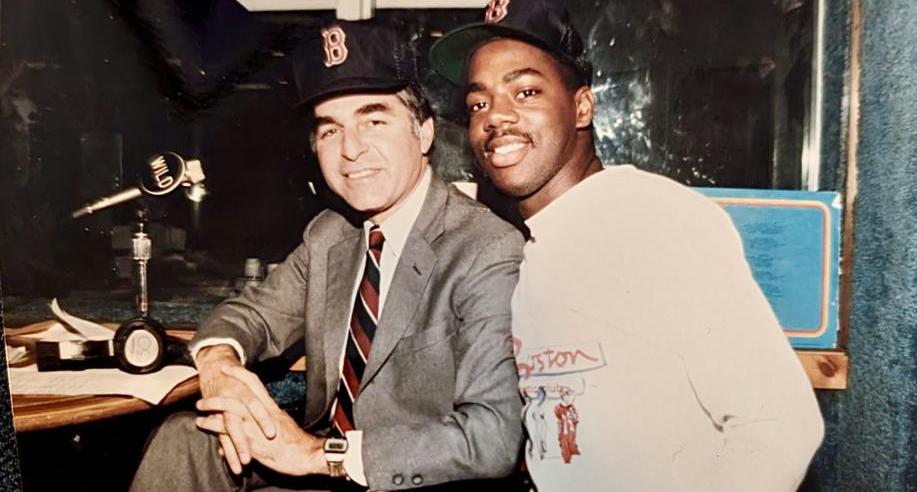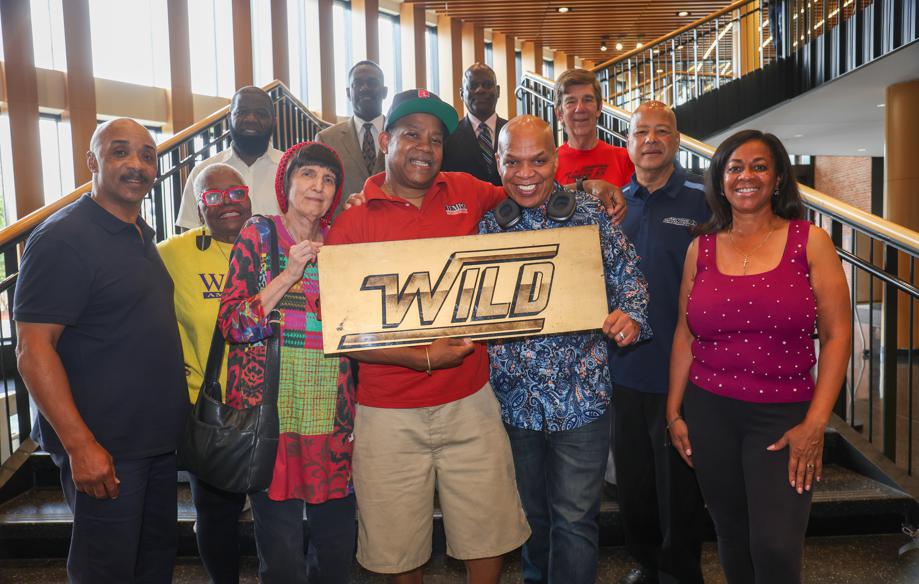
It’s hard to overstate how much WILD 1090 AM shaped the sound of Black Boston for decades, from the Motown era of the 1960s to the turn of the century.
“It was the soundtrack of our lives,’’ Kelley Chunn, president of the Roxbury Cultural District, recalled fondly.
At the station’s first-floor studio on 90 Warren St., just off Nubian Square in Roxbury, listeners and fans would walk in to request songs or try to meet a celebrity or politician who was on the air. WILD moved with the times, bringing listeners unique selections of pop, R&B, and hip-hop from sunrise to sunset, often well before they were played on Top 40 radio.
“Our mission was to be the foghorn for the African American community,’’ said Elroy Smith, the station’s programming director and a host of its morning show from 1983 to 1988.
Though WILD was sold in 2000 by its longtime owner, Boston-based Nash Communications Corp.n, its memory lives on. On Friday, former station personalities reunited at the Boston Radio Reunion and Awards, with Smith hosting.
After a successful reunion for Chicago radio personalities last year, Smith decided to host one in Boston.
Awards were given to Ralph Tresvant, lead singer of beloved Boston band New Edition; Stephen Hill, a former WILD programming director and host who went on to work at BET; Kandi Eastman, a longtime radio host who got her start at WILD; and JoJo “Cookin’’’ Kincaid, who worked at KISS 108 FM under former WILD host and Boston radio legend Sunny Joe White. All were honored for their contributions to the station and Boston radio.
WILD was known for featuring new artists — notably being the first station to play New Edition’s “Candy Girl’’ — and deep cuts listeners couldn’t find on other stations, Smith and others said.
Although WILD could only operate during the day due to Federal Communications Commission regulations, its influence helped bring musicians such as Luther Vandross, Parliament-Funkadelic, and Bobby Womack to Boston.
The station also worked to represent the growing diversity of the city’s Black community. Joseph Johnson, 64, who was born in Trinidad and Tobago, joined WILD as an intern while studying at Emerson College. He hosted a show called “The Caribbean Cruise,’’ which he described as “a musical journey to the islands.’’
Johnson, who organized the reunion with Smith, was among dozens of WILD hosts who brought listeners to artists such as Michael Jackson, LL Cool J, and Gregory Isaacs.
But media historian Donna Halper, who listened to WILD growing up and wrote the book “Boston Radio: 1920-2010,’’ said the station’s influence went far beyond the songs it spun in the studio.
“WILD was the kind of station where when the announcers championed a song, or when the news people championed a cause, or when the sports people championed a team … an awful lot of people trusted them.’’
Chunn, for example, who owns the consulting firm Kelley Chunn & Associates, worked with host Olivia Fox in the 1990s on an obesity prevention campaign aimed at Black women.
The station also served as a place for community leaders to discuss issues and build support.
There were “politicians banging on our door to let their voices be heard,’’ Smith said. Governor Michael Dukakis once came on the air to answer listeners’ questions and even played a few tracks.
The Black community “always had a voice at WILD,’’ Johnson said.
“They always were able to let their issues be heard, and we were always open to giving them that opportunity,’’ Johnson said.
Johnson remembers Boston Housing Authority administrator Doris Bunte discussing efforts to desegregate public housing in the city on his show in 1988.
As listeners shifted to FM radio in the 1980s and 1990s, AM stations struggled to stay afloat, Halper said.
In 2000, WILD was sold to Radio One, now Urban One Inc., and in the ensuing years, the station went through a series of ownership and programming changes.
Chunn said the loss of WILD felt personal because it was the only station in Boston that catered to Black audiences.
“It was all that the Black community had,’’ she said. “It was the voice of the Black community.’’
Mayor Michelle Wu declared Friday ’’WILD Day’’ and presented an acknowledgment to Bernadine Nash, who became the first Black woman to own and operate the station after her husband Kendall Nash passed away in 1992.
The station “excelled in becoming an integral part of Boston,’’ Wu said in an announcement, citing the station’s involvement in community events such as the city’s annual Kite and Bike Festival and readings at Boston public libraries.
The radio personalities reconnected and reminisced about the days when people turned to them for the music they wanted to hear.
“To jump in the car and not be able to turn on the radio and hear Mary J. Blige or Alicia Keys or Maxwell, it’s pretty sad,’’ Smith said.
Jacqueline Munis can be reached at jacqueline.munis@globe.com. Follow her @MunisJacqueline.
